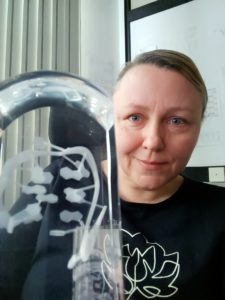To further thank and recognise the support from our excellent reviewer community, we are highlighting reviewers who have provided exceptional support to the journal over the past year.
This month, we’ll be highlighting Dr Arundhati Deshmukh, Dr Zhiliang Wang and Professor Biplab Maji. We asked our reviewers a few questions about what they enjoy about reviewing, and their thoughts on how to provide a useful review.
Dr Arundhati Deshmukh, Stanford University. My current research is related to the broad family of halide perovskites. I design new derivatives of the original perovskites structures, specifically layered perovskites that can emit broadband white-light through a complex excited state landscape.
Dr Zhiliang Wang, the University of Queensland. My research focuses on materials innovation and mechanism understanding in solar energy conversion, such as photoelectrocatalysis, photocatalysis and electrocatalysis.
Professor Biplab Maji, IISER Kolkata. My research focuses on developing diverse catalytic strategies using cheap and abundant resources for environmentally benign and economically sound catalytic transformations.
What encouraged you to review for Chemical Science?
Dr Zhiliang Wang: My first paper was published in Chemical Science. The high requirement and professional peer-review impress me a lot. The paper published in this journal has a high quality. The peer-review for Chemical Science gives me a good chance to get the very first taste of some potential eye-catching researches.
Dr Arundhati Deshmukh: I have always followed the journal for its interdisciplinary showcase, it’s a great way to get acquainted with interesting work outside of your sub-discipline. So, when I received a review request and the paper looked interesting to me, I didn’t even have to think twice.
What do you enjoy most about reviewing?
Professor Biplab Maji: What I particularly enjoy about reviewing manuscripts is the opportunity to engage with the latest research findings and contribute to advancing knowledge in the field.
Dr Zhiliang Wang: I enjoy the comments-reply very much because it provides a channel to have a critical communication about science. It is much like a scientific argument, during which it will deepen my understanding about the research topic.
Do you have any advice to our readers seeking publication in Chemical Science on what makes a good paper?
Professor Biplab Maji: First, ensure your work’s originality and clarity, and always try to get peer feedback from your colleagues, mentors, or collaborators before submitting your paper.
What are you looking for in a paper that you can recommend for acceptance in Chemical Science?
Dr Arundhati Deshmukh: I love seeing papers where fundamental chemistry or a chemical insight/principle is directly related to an impactful solution to current challenges or discovers a new and interesting phenomenon. Of course, it goes without saying that the work has to be sound and well-written, and the findings sufficiently substantiated.
Tune in next month to meet our next group of #ChemSciReviewers!
If you want to learn more about how we support our reviewers, check out our Reviewer Hub.
Interested in joining our ever-growing reviewer community? Apply here now!






































